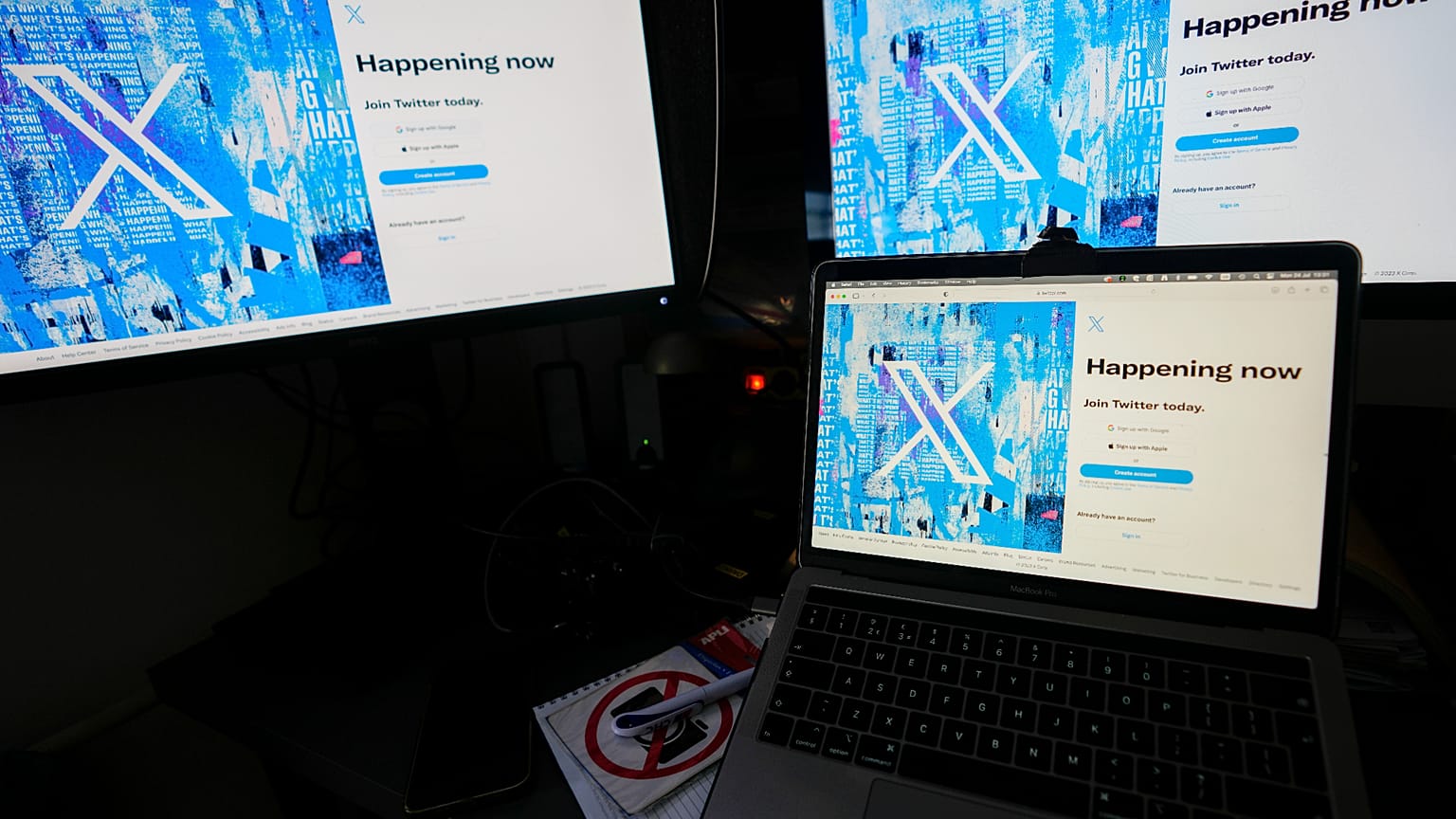A Berlin court ruled in favour of two German nonprofits, who sued X for breaching EU law by not giving them access to data to study how posts on the platform could influence the upcoming election.
Two German non-profit organisations won a lawsuit against Elon Musk's X after the social media platform failed to provide them with data ahead of the upcoming election.
 ADVERTISEMENT
ADVERTISEMENT
 ADVERTISEMENT
ADVERTISEMENT
The lawsuit filed by Germany’s Democracy Reporting International (DRI) and the Society for Civil Rights (Gesellschaft für Freiheitsrechte, GFF) on February 4 alleges that X violates the EU’s Digital Services Act (DSA) that compels platforms to provide researchers with public data “without undue delay”.
The Berlin Regional Court ruled less than 72 hours later that X must grant both organisations "unrestricted access to all publicly available data" now and until shortly after the election, the non-profits said.
The X data will be included in a wider, three-year research project that examines the online political discourse in the run-up to several major elections, including last year’s European Parliament elections.
“This decision is a huge victory for academic freedom and our democracy," Simone Ruf, lawyer and deputy director of GFF’s Center for User Rights, said in a statement.
"We have secured access to crucial research data and are blocking attempts to manipulate elections. It is a strong signal for protecting fundamental rights in the digital age," Ruf added.
A spokesperson from DRI said it is the first lawsuit to their knowledge in Germany and the EU for this right to access data, though the EU is still investigating X over possible DSA breaches.
Paid data plans ‘dissuade’ researchers, EU says
Under the DSA, “very large” platforms are required to provide access to their data to non-profits, organisations and associations that use it for research on the “detection, identification and understanding of systemic risks” on social media.
The lawsuit said both organisations filled out X’s online form for researcher access to data in April 2024 as part of their wider research project. DRI’s application was denied in November.
The statement continued that other platforms have allowed DRI and GFF to access the data they need for their studies, but not X. They say it’s important for them to fulfil their role by researching these risks.
X gives limited free access to its Application Programming Interface (API), but if people want a higher volume of data, they have to pay a monthly fee for “Pro access” of up to $5,000 (€4,794), a cost that a spokesperson for DRI said is “prohibitively expensive”.
Plus, the “Pro Access” tier only gives access to one million monthly X posts, which the lawsuit alleges will not be enough to effectively evaluate systemic risks on the platform.
“If researchers ask about posts that have a certain keyword from a disinformation campaign and it’s particularly virulent, your monthly budget can already be used up by this one request,” the lawsuit says.
The European Commission’s initial investigation into X agreed, noting in a 2024 press release that the company “appears to dissuade researchers from carrying out their research projects, or leave them with no other choice than to pay disproportionally high fees”.
Euronews Next contacted X for comment but didn’t receive an immediate reply.

















